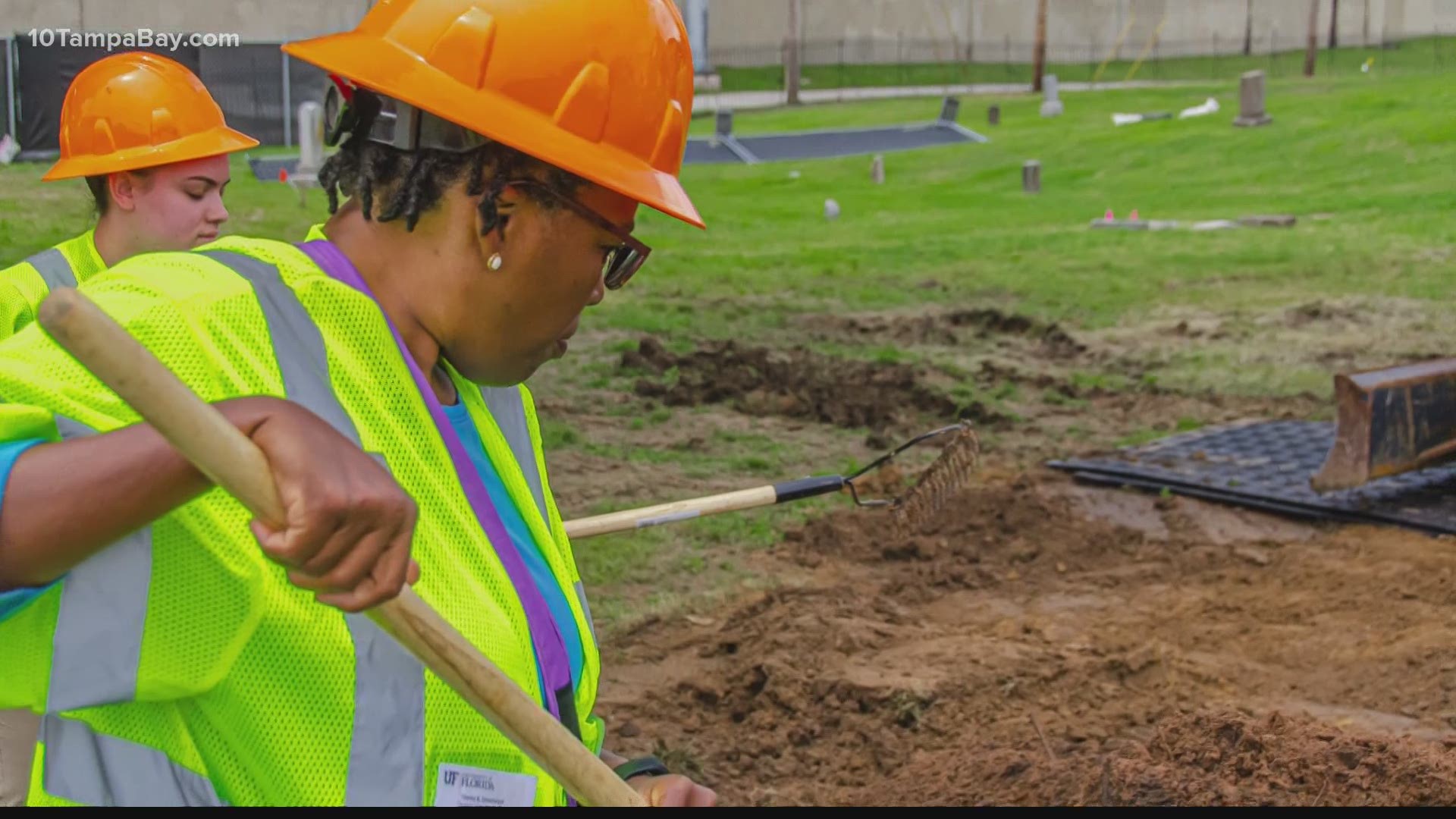TULSA, Okla. — A forensic anthropologist from the University of Florida is leading the search for mass graves of those killed 100 years ago this month.
On Tuesday, Dr. Phoebe Stubblefield and a group of anthropologists, researchers and archaeologists announced they had uncovered 15 graves in addition to 12 they found last year, bringing the total to 27. Their search is taking place in the African American section of the potter’s field at Oaklawn Cemetery in Tulsa.
“We do have documentation of 18 adults and one juvenile buried on June 2 in 1921," said Dr. Stubblefield, who added she is “almost certain” they will find more.
For Dr. Stubblefield, the search for these graves has been a 20-year journey. She researched the massacre as part of the Tulsa race riot commission when she was a student at UF two decades ago, but said the work ended abruptly.
“In 2000, the Tulsa race riot commission had investigated the likelihood of mass graves and other features hidden in history from Tulsa race riot, as they called it then, and but then due to whatever reasons, the commission disbanded,” she said.
However, a few years ago, Tulsa's mayor wanted to search again, and Dr. Stubblefield joined the team.
“Everything has come together and I just, I thank God,” she said.
Dr. Stubblefield said before her initial research on the massacre, she knew nothing about it, despite having a personal connection.
“My great aunt Anna Woods lost her home in the riot,” she said.
Dr. Stubblefield’s parents grew up in Tulsa, and she said it was just something they never talked about. She also said her work in the cemetery reveals a complicated history that tells a unique story about the place African Americans have occupied throughout time.
“This is such a complex history for African Americans in the U.S. that has to deal with the economy, let alone a cultural concept of being, lower caste,” she said.
"Once you become marginalized, it's hard to control your cemetery, and it's still a place to honor the dead, regardless of who's buried there. So, all cemeteries should have equal protection.”
Dr. Stubblefield said researchers will be excavating the bodies and then testing them to see if they are actually from 1921. Tampa Bay archaeologists with Cardno who've helped search for some of the destroyed African American cemeteries in our own area are now in Tulsa helping with the research.
What other people are reading right now:
- 30% chance Caribbean disturbance could develop into tropical depression, named storm
- US Senate report details sweeping failures around Jan. 6 Capitol attack
- COVID-19 vaccines: Florida needs to step it up to reach Biden's goal
- New FDA approved Alzheimer’s treatment 'brings hope,' even if it’s not a 'miracle drug'
- Tampa Bay area cleanup efforts to get involved with for World Oceans Day
►Breaking news and weather alerts: Get the free 10 Tampa Bay app
►Stay In the Know! Sign up now for the Brightside Blend Newsletter

